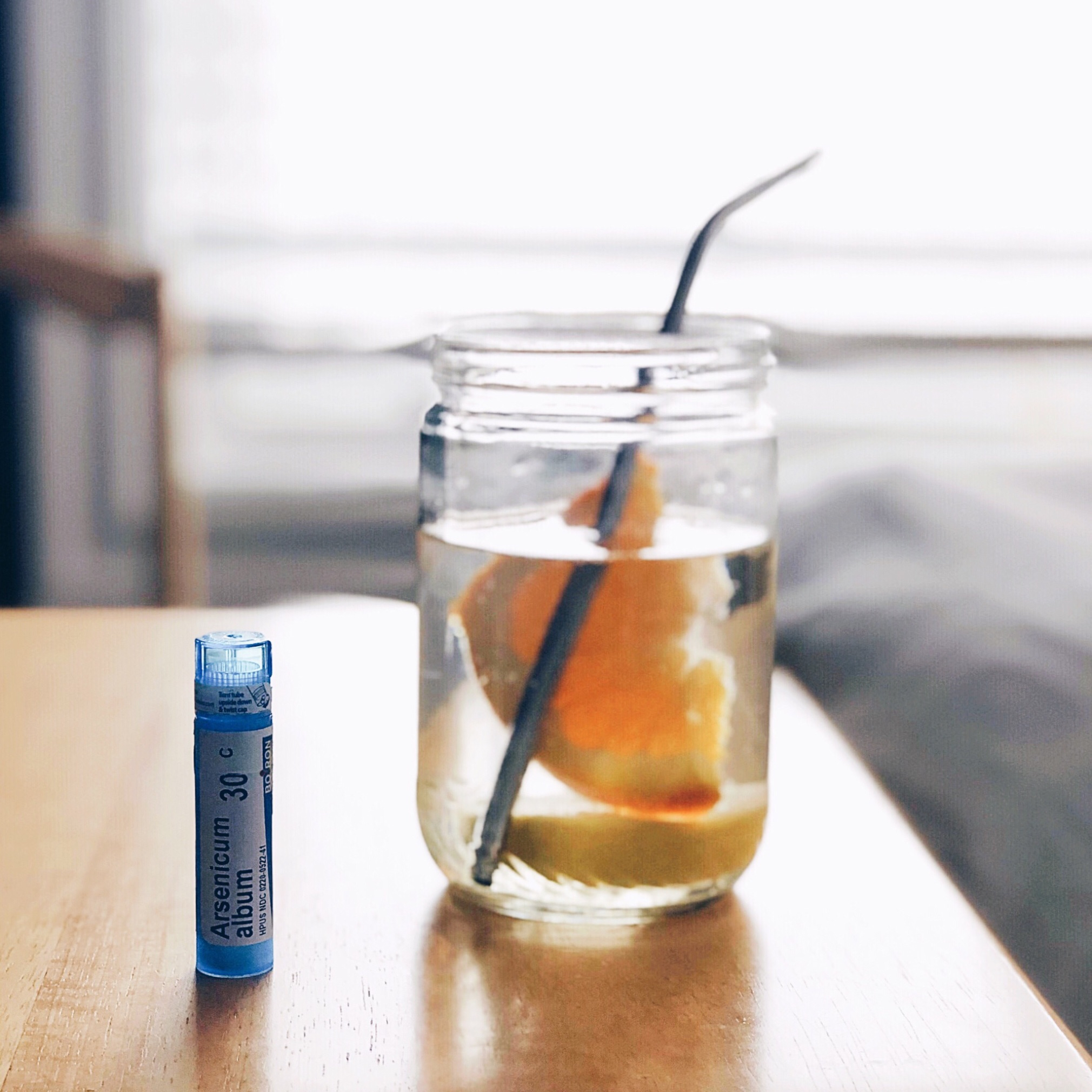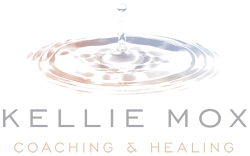I’m not fond of the term “flu season.” I tend to think of this time of year as the season of inadequate sunshine coupled with excessive proximity to others. This cooler, darker time of year may also equate to eating differently, exercising differently, consuming media and alcohol differently, and even thinking and emoting differently than we do in the warmer, brighter months. All of these things, among others, can make us more susceptible to the viral and bacterial agents that proliferate in cooler temperatures. And then, when we do develop symptoms in response to a cold or flu virus, how we respond to them has a profound impact on how we move through them. All too often we ignore or suppress our body’s symptoms, which can escalate our suffering and increase the duration and severity of our acute (short-term) condition. So read on if you want to know how we approach this season naturally in our family.

Prevention
Practices that make you less susceptible to infection clearly influence how often you “catch cold.” Most of us know that exercising, managing stress, and nourishing our bodies with nutrient-dense foods improve our immune function. If you aren’t familiar with these connections, just Google “exercise and immune function” or “stress and immune function,” and you’ll unearth multitudes of supporting research. I’m not going to repeat it all here. Knowing the information, though, and taking action on it are two very different things. Health-promoting behaviors have the greatest impact when they’re practiced regularly, so if you’re feeling stuck or unsure of how to bring any of these ideas into your daily life (or your children’s lives), please reach out for a free exploratory session.
Below are some ways we harness the power of prevention. Many of these are basic foundations of wellness, which are good in any season.
- Regular exercise and movement. Exercise that elevates the body temperature and encourages a sweat can be particularly beneficial (it’s theorized that the elevated body temperature may mimic fever, thus killing viruses and bacteria). Kids need to move, too! Limiting screen time and promoting physical activity go a long way in boosting the immune system.
- Freshly pressed organic fruit and veggie juices, bone broth, and herbal infusions. (We love them with stinging nettle, red raspberry leaf, chamomile, peppermint, and lemon balm).
- Limit or eliminate refined or processed sugar. Sugar modulates inflammation and can have an impact on the immune system. We eat plenty of sugar in fruits and veggies. But we steer clear of high-fructose corn syrup as well as food additives and preservatives (dyes especially) that can impact our ability to rest and focus.
- Limit or eliminate alcohol. Alcohol has so many effects on the body, not just on the immune system.
- Spend time outside every day if possible. Nature is powerful medicine.
- Take supplements as needed. Vitamin C, Zinc, D3/K2, and elderberry syrup are three of our must-have immune support supplements. We also turn to cod liver oil and probiotics, too.
- Manage and reduce stress. Stress management looks different for everyone. For my kids, it looks like having adequate downtime. For me, it looks like having alone time and space to create, journal, move my body, and connect with my people.
- Sleep and rest. This is so important, yet often undervalued, especially for our kids.
- Use homeopathy. I have used homeopathy extensively as a parent in acute situations before pursuing my homeopathic training. For chronic conditions it is definitely advisable to work with a homeopath (I do see patients now under supervision), but for colds and fevers, homeopathy is at your fingertips and is a gentle, effective way to guide the body back to balance naturally. And, in some cases, it can be used to support the immune system before symptoms emerge. The biggest challenge is knowing which remedy to choose, since homeopathy is an individualized medicine. The good news is that if a remedy isn’t the right one, it does no harm (even if it doesn’t help). A couple resources for selecting remedies in acute illnesses are here and here.
Treatment
Do we do all of these things all the time? No. Do we succumb to viral and bacterial illnesses? Yes. Which brings me to the thing I really want to share with you today…
A healthy lifestyle reduces our susceptibility to infection, but sometimes, despite doing all the things, we develop symptoms. What then? I believe that how we approach our symptoms is as important as how we prevent them. This is where we have even more power to strengthen our bodies and our overall health. But it may ask you to reframe your thoughts around the symptoms of acute infections. Let me explain.
Slowing Down
Sometimes we NEED the symptoms of acute illness, which can—and often do—serve a purpose. Sometimes, symptoms come on to force us to slow down. It’s not infrequently that stress and too-full schedules take a toll on the body. It’s also fairly typical that adults ignore the early signs of illness, pushing through with the hope of continued productivity. We so rarely allow ourselves the space or time for deep rest and restoration (our workplaces and general culture don’t often support this either). Often, if we slow down and offer our bodies what they need when symptoms set in, honoring them in the ways I mentioned above, we’re restored to balance quite quickly.
Let it Be
Another way we often approach our symptoms is to medicate or suppress them. Fevers, coughs, runny noses, and fatigue are not only messengers, asking us to give our body what it needs, they also are GOOD things. Let me repeat that: mild to moderate fevers in acute ailments are a good thing. Fever-reducing medications give the illusion that we’re fine so that we can push through (and infect those around us in the process). And they often prolong our discomfort, because we’re literally pressing pause on our innate healing capacity. Think about this: fevers are a built-in defense mechanism, the elevated temperature creating an inhospitable environment for invading bacteria and viruses. If we reduce the fever before it has completed its job, the bugs have more opportunity to proliferate. Mucous production is a defense mechanism, too, washing away invaders and toxins. Then there are the very real dangers of repeated and regular use of fever-reducing medications. We rarely, if ever, suppress moderate fevers in our home, rather we support the body in moving through it with homeopathy and use the health-promoting strategies above as much as possible.
Reframe
It’s also important to remember that acute symptoms are a sign of a functioning immune system. In our house, I remind my kids that they aren’t “sick” when they have fevers and stuffy noses. Rather, their bodies are responding appropriately to an invader. Indeed, we develop symptoms like fever or runny nose from exposure to a “bug” because our immune system, our innate defense mechanism, is strong enough to mount a response. If you never have symptoms of acute illness, you may be remarkably healthy or you may have a deeper level of dysfunction. I’m an example of this. I never had cold or flu symptoms in my thirties when my chronic illness was at its peak. As my autoimmunity healed, I started to get colds again, and I had a fever for the first time in decades last fall. It wasn’t comfortable, but I celebrated the fact that my immune system was attacking invaders and not my own body! Theories and research also suggest that exposure to bacteria and viruses may build strength and resilience in the immune system and help to prevent certain autoimmune and chronic diseases.
I hope this provides you with some tools and some things to think about as you navigate this season. If you have any questions at all, I’m happy to answer them. Drop a comment here, schedule a free exploratory session, or e-mail me!
*This information is not a substitute for medical advice. External links are not affiliated with Kellie Mox Coaching & Healing and are only included as resources for further exploration.


